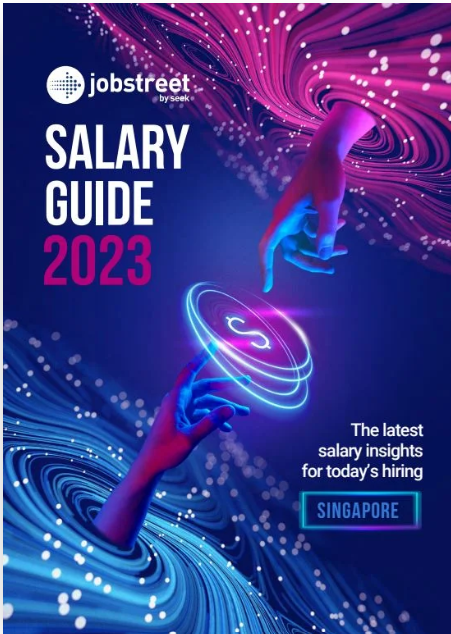
Introduction
Because people are crucial to the performance and culture of an organization, an experienced talent acquisition manager is a vital function at any company. The objective of the talent acquisition operations manager is to assist expanding organizations in developing teams of competent employees with skills who are inspired by the organization’s mission and values.
Leaders use technology without knowing how their systems will face recruiting difficulties. That’s why to prevent complications in various geographical areas due to a large number of compliance regulations, talent acquisition managers switch recruiters to smart recruiters. For example, before switching to smart recruiters, recruiters at Deloitte Netherlands spent up to 50% of their time on administrative chores because a typical applicant journey required over 200 manual data entry points.
Now let’s dive into the essential information about the talent acquisition operations manager and their key responsibilities.
Contents
- Introduction
- What is a talent acquisition manager?
- Skills of a talent acquisition manager
- Key Responsibilities of an Operations Manager
- Interviewing and assessing potential candidates
- Ensure compliance
- Understanding training requirements
- Facilitate data-driven teams
- Stay up to date with the market
- Building a strong employer brand
- Facilitating hiring teams
- Where to find a talent acquisition manager
- Conclusion
What is a talent acquisition manager?
A talent acquisition manager is a professional who is responsible for identifying, attracting, and retaining qualified candidates to meet the needs of an organization. The primary objective of a talent acquisition manager is to find and recruit the best candidates for companies’ various positions.
Professionals in talent acquisition create and execute talent acquisition strategies to guarantee the proper team is in place to support overall business objectives. They also possess an in-depth understanding of an organization’s overall business goals. While developing a long-term strategy that predicts which talents or roles will be in demand in the upcoming months and years, talent acquisition managers also concentrate on short-term hiring demands.
A comprehensive degree in the field, like the online Bachelor of Science in Human Resource Management offered by Maryville University, may give prospective talent acquisition managers the skills and information they need to advance.
Skills of a Talent Acquisition Manage
- Communication Skill: Managers in this position are required to make recruitment decisions, and deliver written and verbal presentations on their programs and strategies.
- Problem-Solving Skill: Ability to identify recruitment problems and develop creative solutions to overcome them.
- Technological Skill: Talent acquisition managers often have to use technological sources such as social platforms and online job boards to explore and recruit new candidates.
Key Responsibilities of an Operations Manager
- Interviewing and assessing potential candidates
Once candidates submit for open positions, a talent acquisition manager is in charge of conducting initial interviews and administering assessments to verify individuals are qualified to proceed forward with the process. Assessments may involve tests to determine a candidate’s hard capabilities for a given function, as well as soft skills to evaluate how an individual might cooperate with other team members.
According to the ADI Vietnam Newsletter, talent acquisition operation managers use different Effective Interview Techniques for Assessing a candidate’s Fit, such as behavioral interview questions, situational interviews, cultural fit, and more.
- Ensure compliance
Any multinational company will discover that the complexity of legislative rules makes it difficult to build fully consistent recruiting practices across national borders. The talent acquisition enablement manager must use judgment in deciding whether to apply standards based on the nation with the harshest rules or to configure systems and processes for each country. Along with collaborating closely with the information security and legal departments, they will also need to assess new systems according to their capacity for worldwide use.
- Understanding training requirements
The process of bringing new systems online and configuring them is just the beginning; users also need to know how to use them. The amount of training a Talent Acquisition Manager needs can vary based on the size, sector, and particular requirements of the company. Everyone gains when the system is used properly. Applicants enjoy a better experience, and the company collects data that helps it improve its procedures.
- Facilitate data-driven teams
When it comes to hiring new employees, the proverb “you can’t manage what you can’t measure” is accurate. Maintaining efficient data collecting and tracking is essential for the manager in charge of TA enablement to keep improving the talent acquisition process as a whole.
Measuring stakeholder satisfaction and team performance is another aspect of recruiting effectiveness. The TA enablement lead can be in charge of starting and monitoring surveys to measure recruiting managers’ and candidates’ satisfaction.
Reliable and useful reporting enables TA to improve its standing as a corporate partner. As per Kara Ayers, Head of Global Talent Acquisition, Xplor was able to scale its business with the help of TA, because of improved reporting.
What Does a Talent Acquisition Specialist Do?
- Stay up to date with the market
Since business and technology are changing at such a rapid pace, new problems always require new solutions; therefore, a TA enablement manager must be knowledgeable about both the business and the state of technology to provide informed recommendations.
Consistent career growth depends on peer relationships and ongoing education. Participating in events such as RecFest, HRTech, and UNLEASH may be considered in this category.
Hiring Without Boundaries, a TA education-focused stage at RecFest UK 2023. There was a standing-only discussion on how TA may use ChatGPT conducted by Ben Handyside, Director, Talent Acquisition, EMEA at Collier’s.
- Building a strong employer brand
An employer brand is the image that a business has in the eyes of potential employees. Talent acquisition managers frequently collaborate with marketing to find strategies to improve the employer brand and entice top talent to join the team. An organization’s social media posts, employee review websites, corporate social responsibility initiatives, team member endorsements, careers page, and social media content are all components of their employer brand.
- Facilitating hiring teams
It shouldn’t be necessary for hiring managers and recruiters to be technological specialists. A thoughtfully created user experience (UX) empowers recruiters and hiring managers, while backend staff handles configurations. When a staff member is in charge of directing the processes and keeping everyone on track, recruiting teams may function more efficiently and fill openings faster with better candidates. Companies that use recruitment enablement techniques will have a competitive advantage. Recruitment enablement is critical to the future of talent acquisition.
Where to find a talent acquisition manager
A competent team of people can be assembled to meet long-term corporate objectives with the aid of an experienced talent acquisition manager. Upwork can assist you in finding a skilled talent acquisition manager to join your company.
You may find qualified freelancers on Upwork who can assist your company in creating and implementing effective talent acquisition strategies. Use Project Catalog™ to make it simpler to find and hire experienced talent acquisition personnel. Look for one-on-one consultations or fixed-price projects, then choose the one that best fits your budget and talent acquisition objectives.
Conclusion
This article showed how bringing a talent acquisition operations specialist to the team can significantly improve a business’s efficiency by reducing costs, streamlining operations, and increasing productivity. However, focusing on improving all of these components at once is a step in the right direction toward the ultimate objective of improving the application experience for the company as a whole. Candidate satisfaction is critical in today’s world, since skill and talent shortages have a big impact on the labor market and talent acquisition is getting harder and harder. Consequently, the utilization of recruitment tools has the potential to significantly enhance the efficacy and relevance of the many stages involved in the hiring process for recruiters as well as, crucially, prospects.
All things considered, talent acquisition operations managers are essential to promoting operational excellence in the hiring process. They make sure that the process runs smoothly, complies with laws and regulations, makes effective use of technology, and provides top-notch talent to meet organizational goals.








Leave a Reply